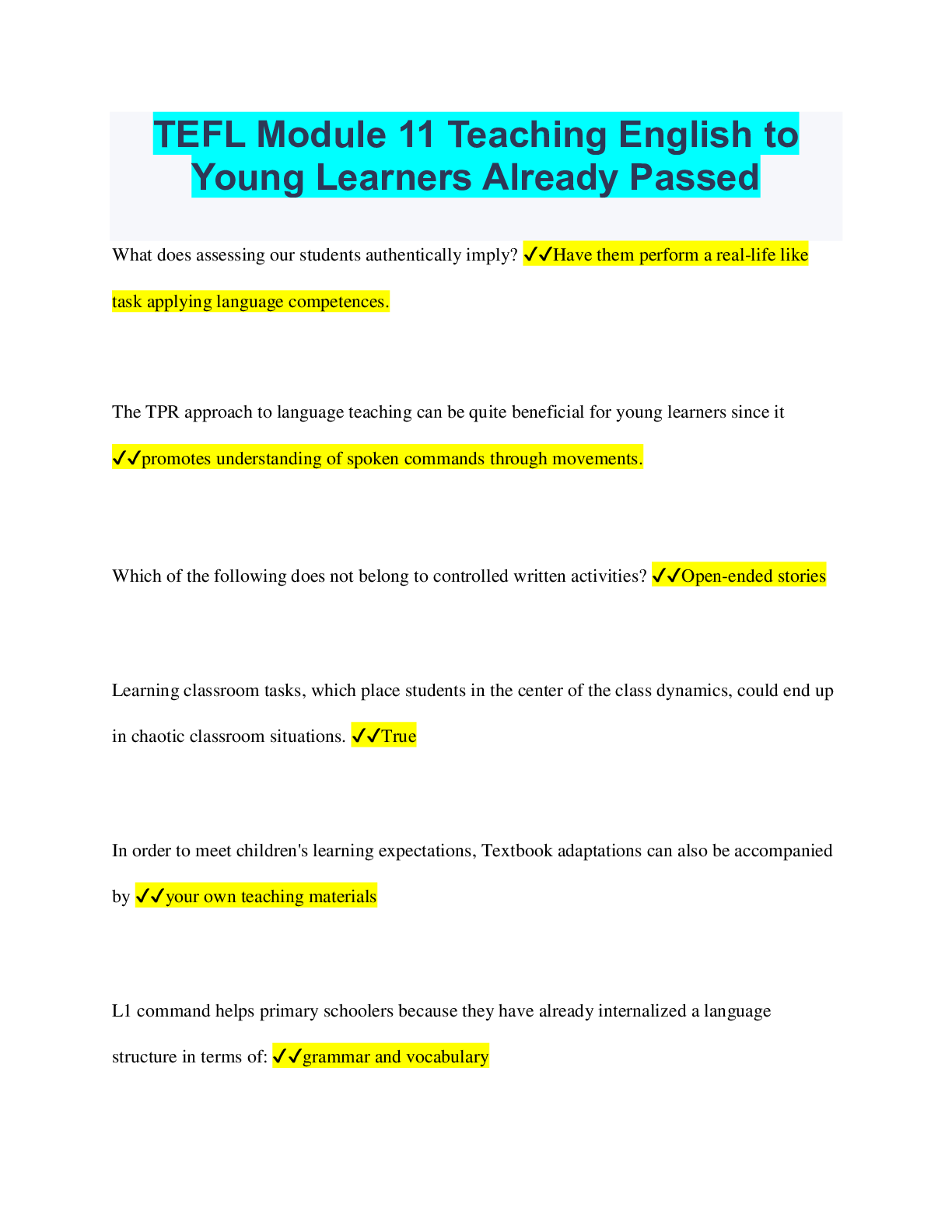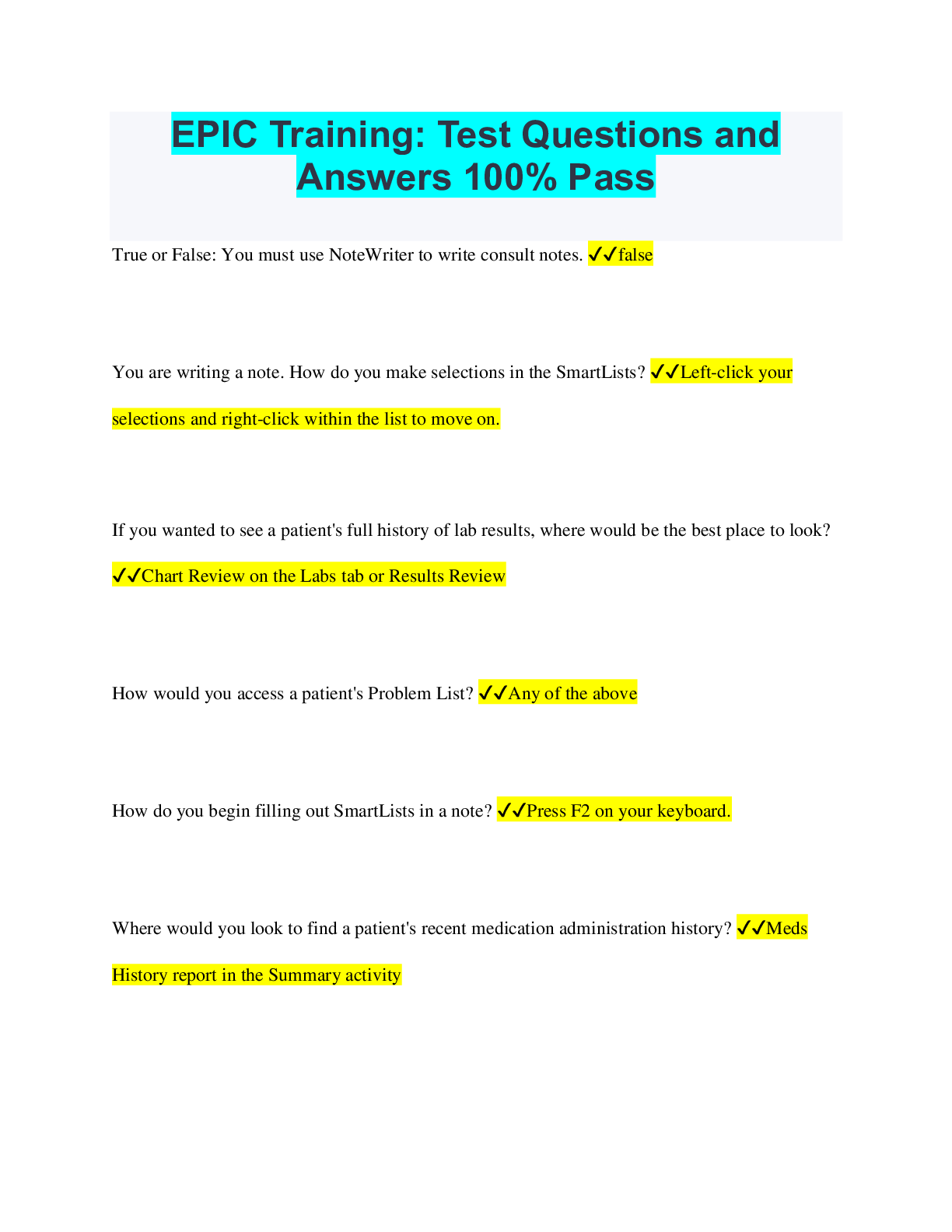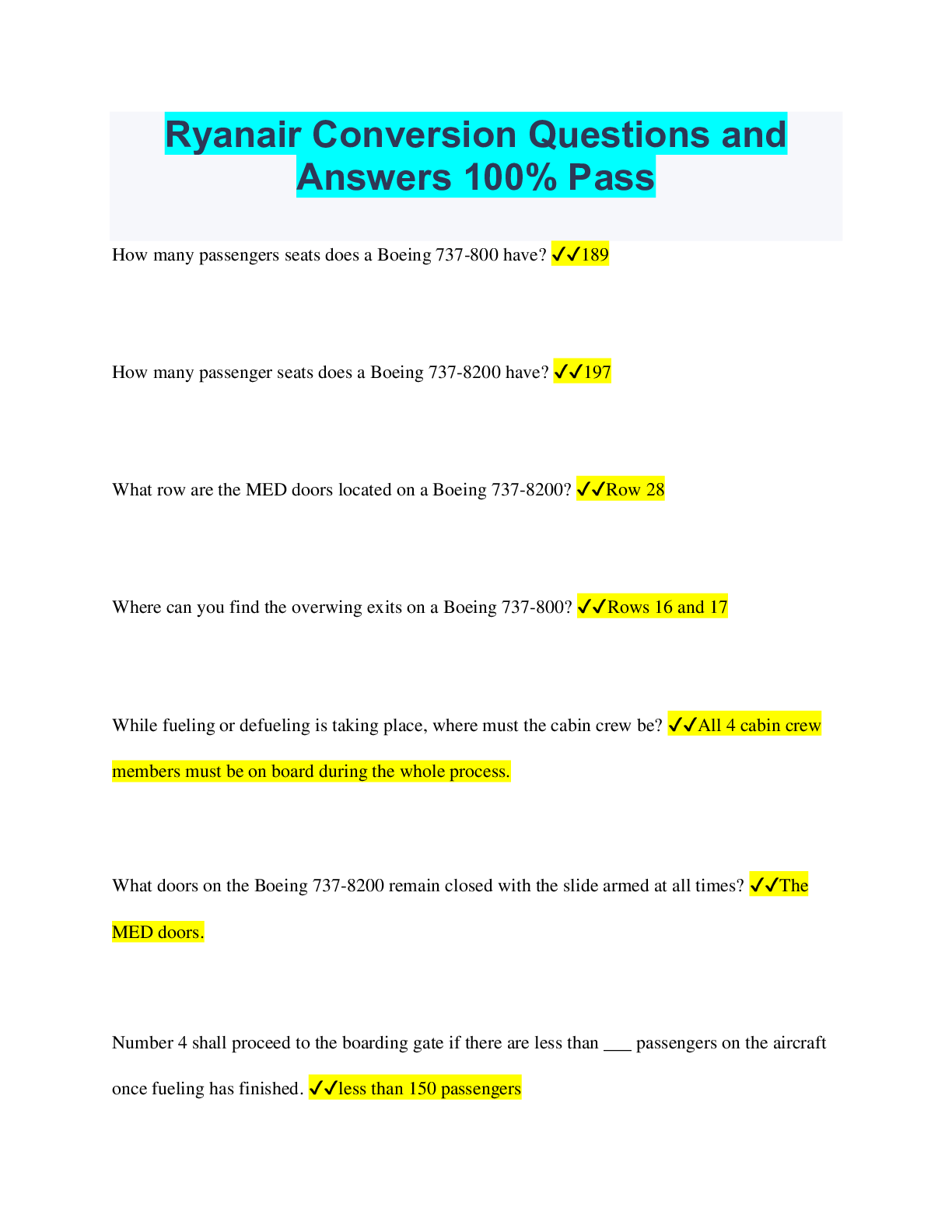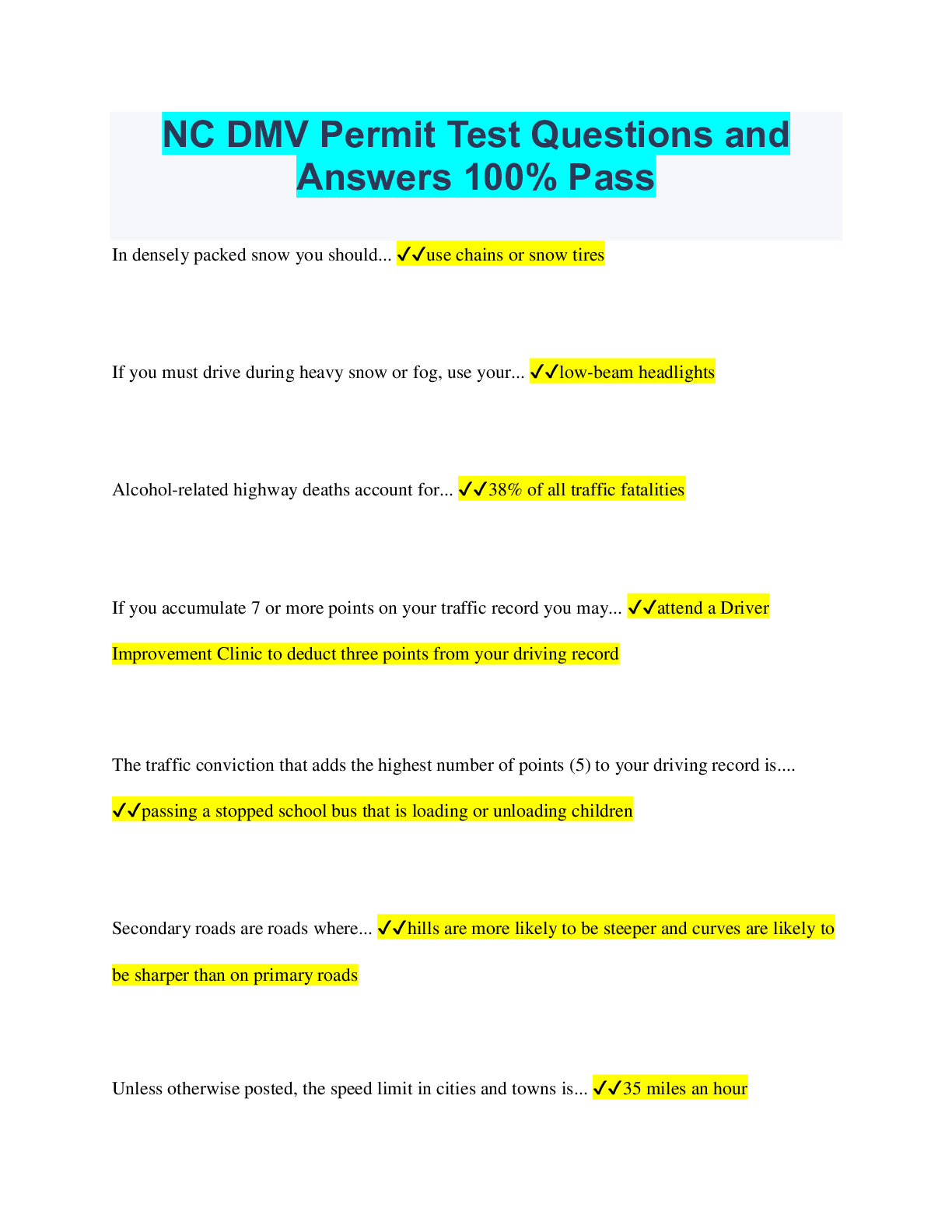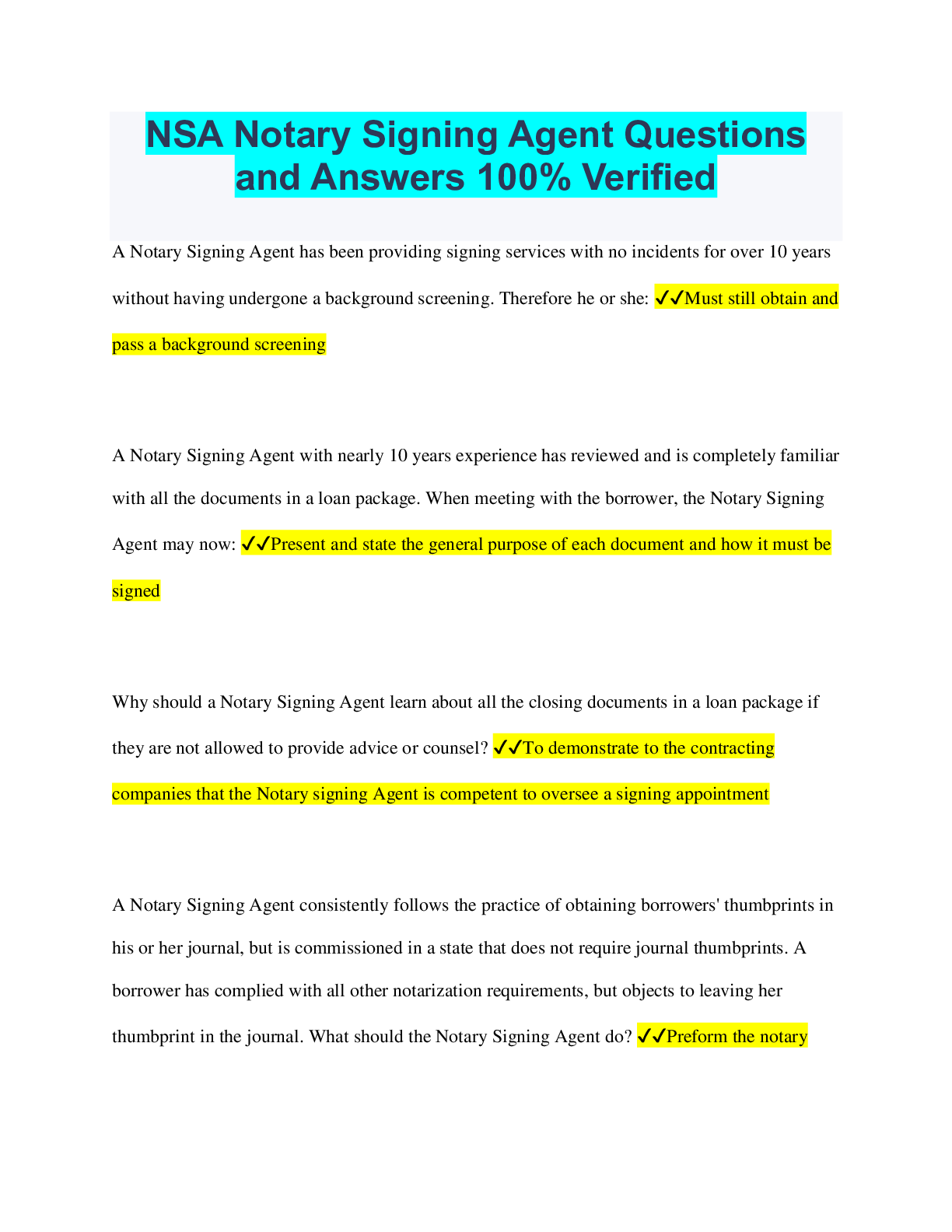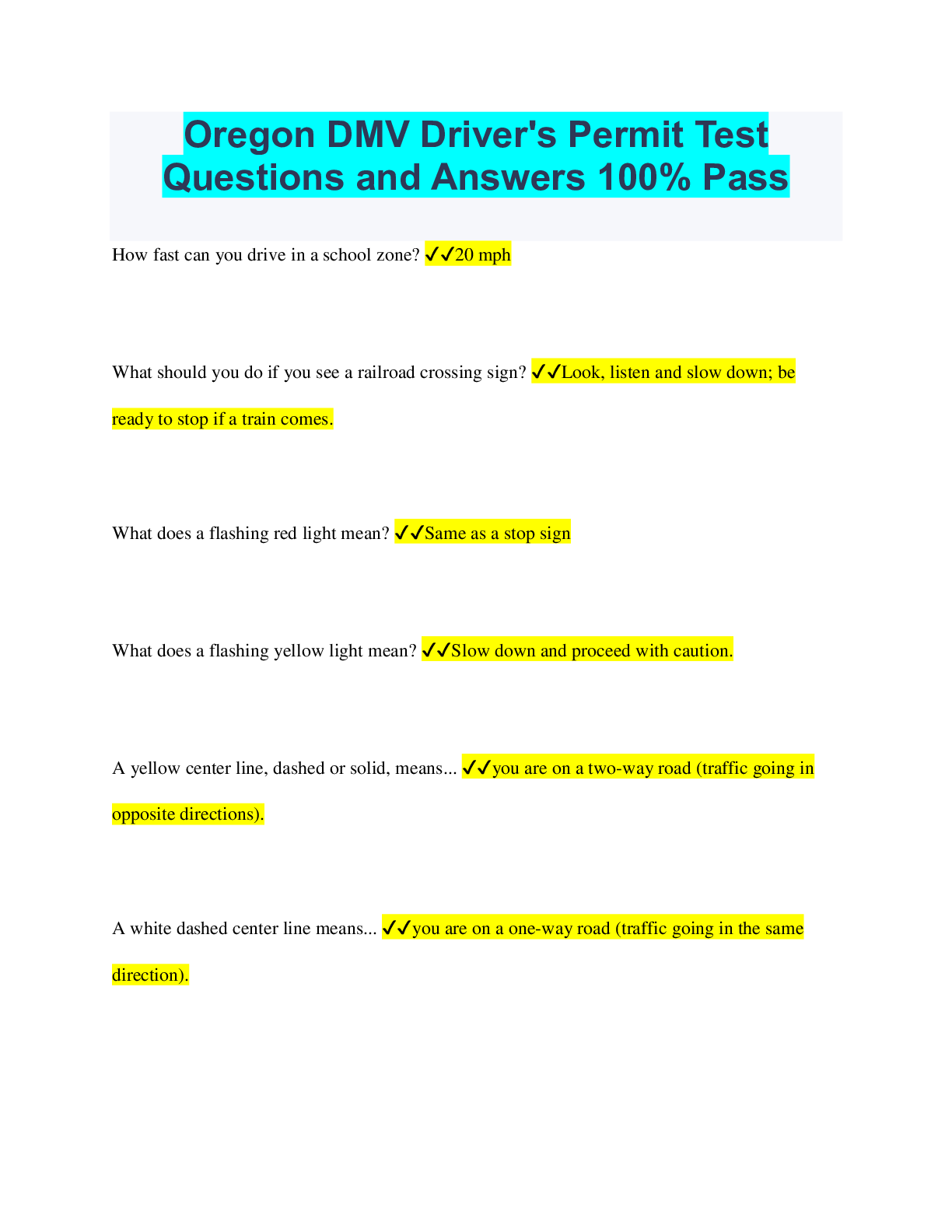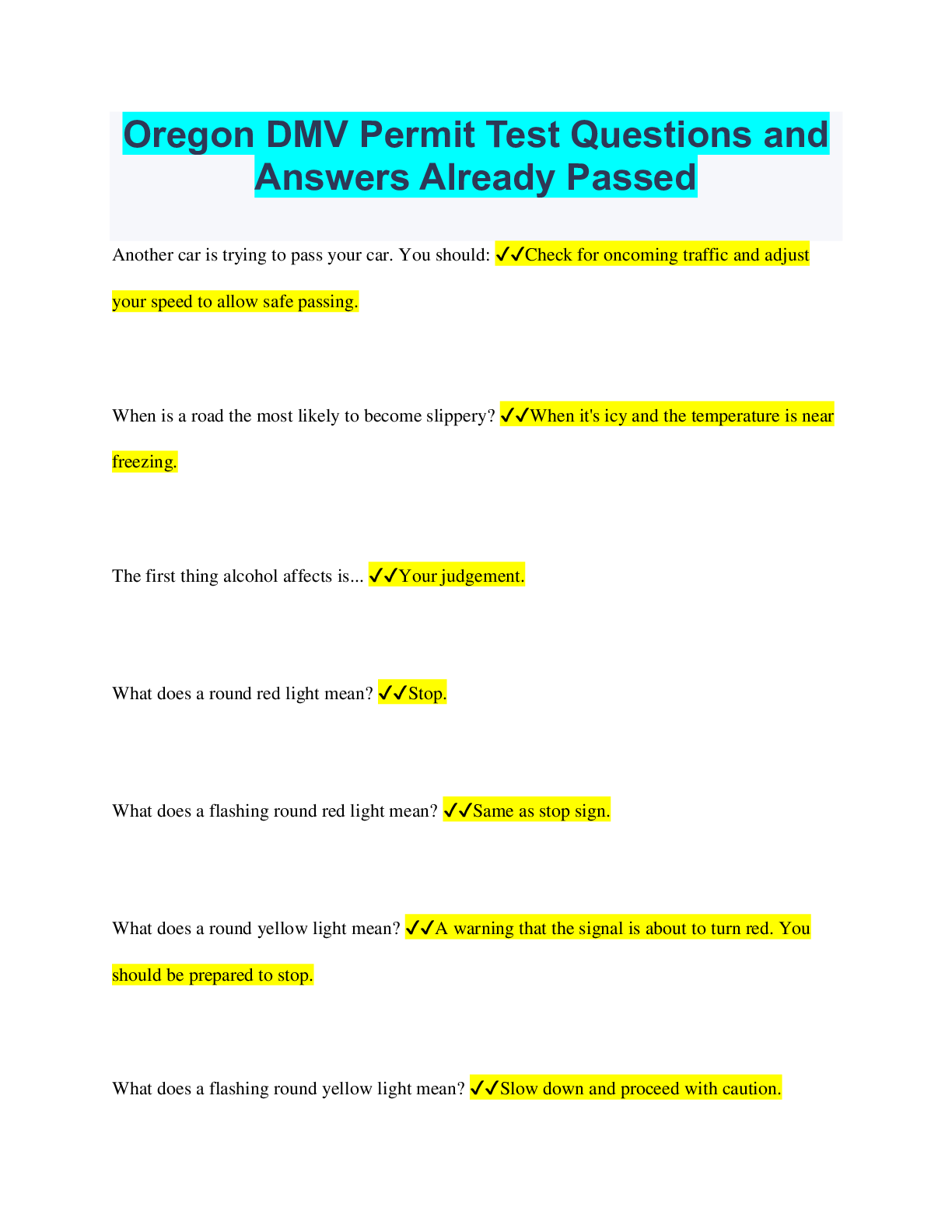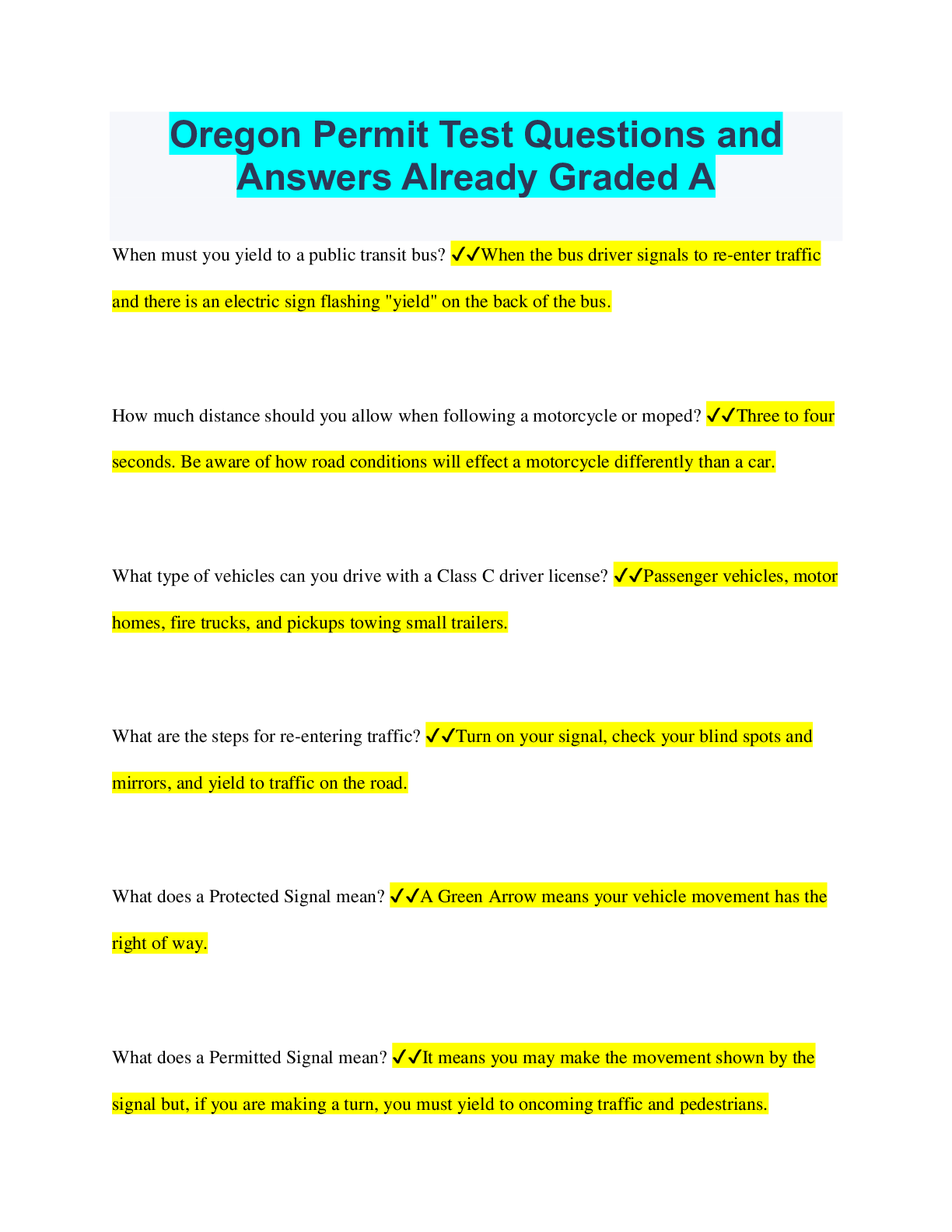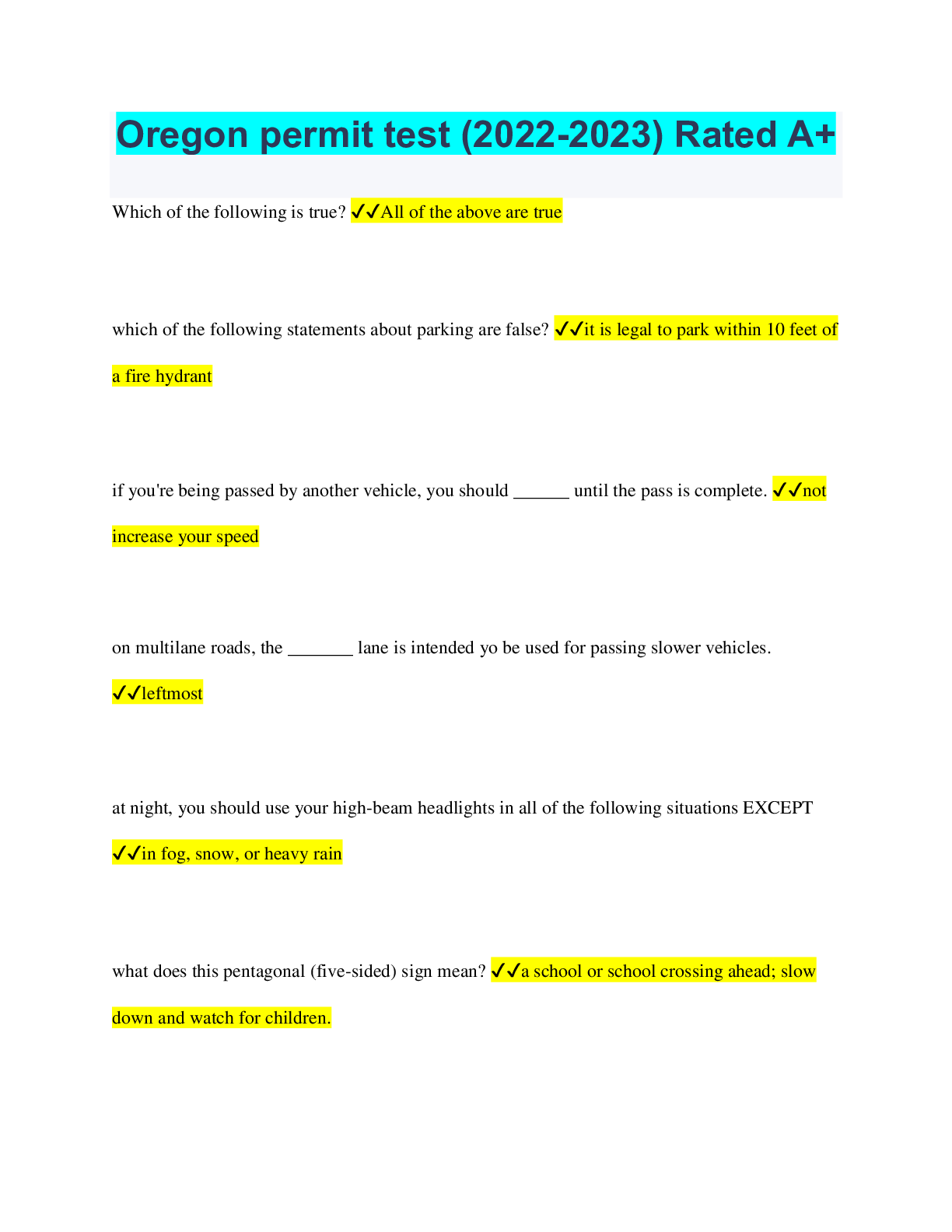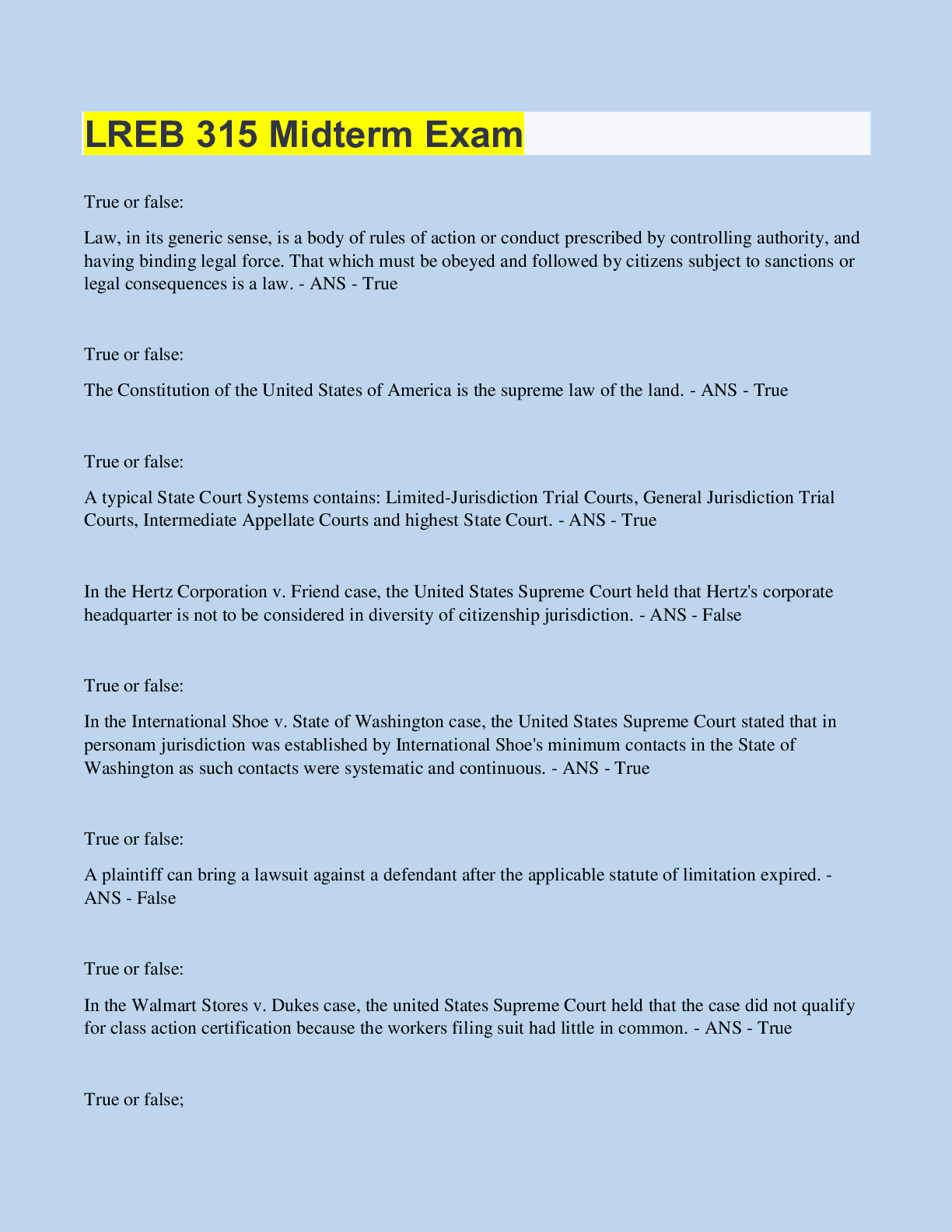Education > QUESTIONS & ANSWERS > TExES Core Subjects EC-6 (291) Questions and Answers Graded A+ (All)
TExES Core Subjects EC-6 (291) Questions and Answers Graded A+
Document Content and Description Below
TExES Core Subjects EC-6 (291) Questions and Answers Graded A+ phonemic awareness development ✔✔Awareness of sounds in a language Awareness of rhymes Awareness that sentences can be broken dow... n into words, syllables, and sounds Ability to talk about, reflect upon, and manipulate sounds Understanding the relationship between written and spoken language Rhyming, segmenting sentences into words, blending syllables into words, delete/substitute syllables/sounds from words phonemes ✔✔the smallest unit of speech that can be used to make one word different from another word. single unit of sound Vowel-consonant patterns ✔✔In a cvc pattern, the vowel is often a short vowel sound. In a CVCe word, the vowel is followed by a consonant and then the letter e. The e is usually silent and the vowel before the e is usually long. In a CVVC word, two vowels appear between two consonants. reading comprehension: A. Literal B. Inferential C. Evaluative ✔✔Literal - Readers identify and/or recall relevant information explicitly stated in the reading selection by - identifying the order of events or a specific event from a sequence of events. -identifying details such as key words, phrases or sentences that explicitly state important characteristics, circumstances, or similarities and differences in characters, times or places. Inferential - Readers use information explicitly stated in the passage to determine what is not stated. Readers derive meaning by -identifying implicit relationships (relationships not directly stated) such as cause and effect, sequence-time relationships, comparisons, classifications and generalizations. -predicting probable future outcomes or actions. Evaluative - In evaluative comprehension readers analyze and make judgments about what they read. At this level, readers use evidence from the text to reach conclusions and make generalizations about the text and its wider implications by -drawing conclusions about the characteristics, values, and habits of human beings. -drawing conclusions about the author's motivation or purpose for writing a passage or story based on evidence in the selection. Spelling Development: PRECOMMUNICATIVE SPELLING ✔✔"babbling" stage of spelling. Children use letters for writing words but the letters are strung together randomly. The letters in precommunicative spelling do not correspond to sounds. Examples: OPSPS = eagle; RTAT = eighty. SEMIPHONETIC SPELLERS ✔✔know that letters represent sounds.They perceive and represent reliable sounds with letters in a type of telegraphic writing. Spellings are often abbreviated representing initial and / or final sound. Examples: E = eagle; a = eighty. PHONETIC SPELLERS ✔✔spell words like they sound.The speller perceives and represents all of the phonemes in a word, though spellings may be unconventional. Examples: EGL = eagle; ATE = eighty. TRANSITIONAL SPELLERS ✔✔think about how words appearr visually;a visual memory of spelling patterns is apparent. Spellings exhibit conventions of English orthography like vowels in every syllable, e-marker and vowel digraph patterns, correctly spelled inflectional endings, and frequent English letter sequences. Examples: EGIL = eagle; EIGHTEE = eighty. CONVENTIONAL SPELLERS ✔✔develop over years of word study and writing. Correct spelling can be categorized by instruction levels. For example, correct spelling for a corpus. . . words that can be spelled by the average fourth grader would be fourth grade level correct spelling. Place the word in this category if it is listed correctly. [Show More]
Last updated: 2 years ago
Preview 1 out of 31 pages
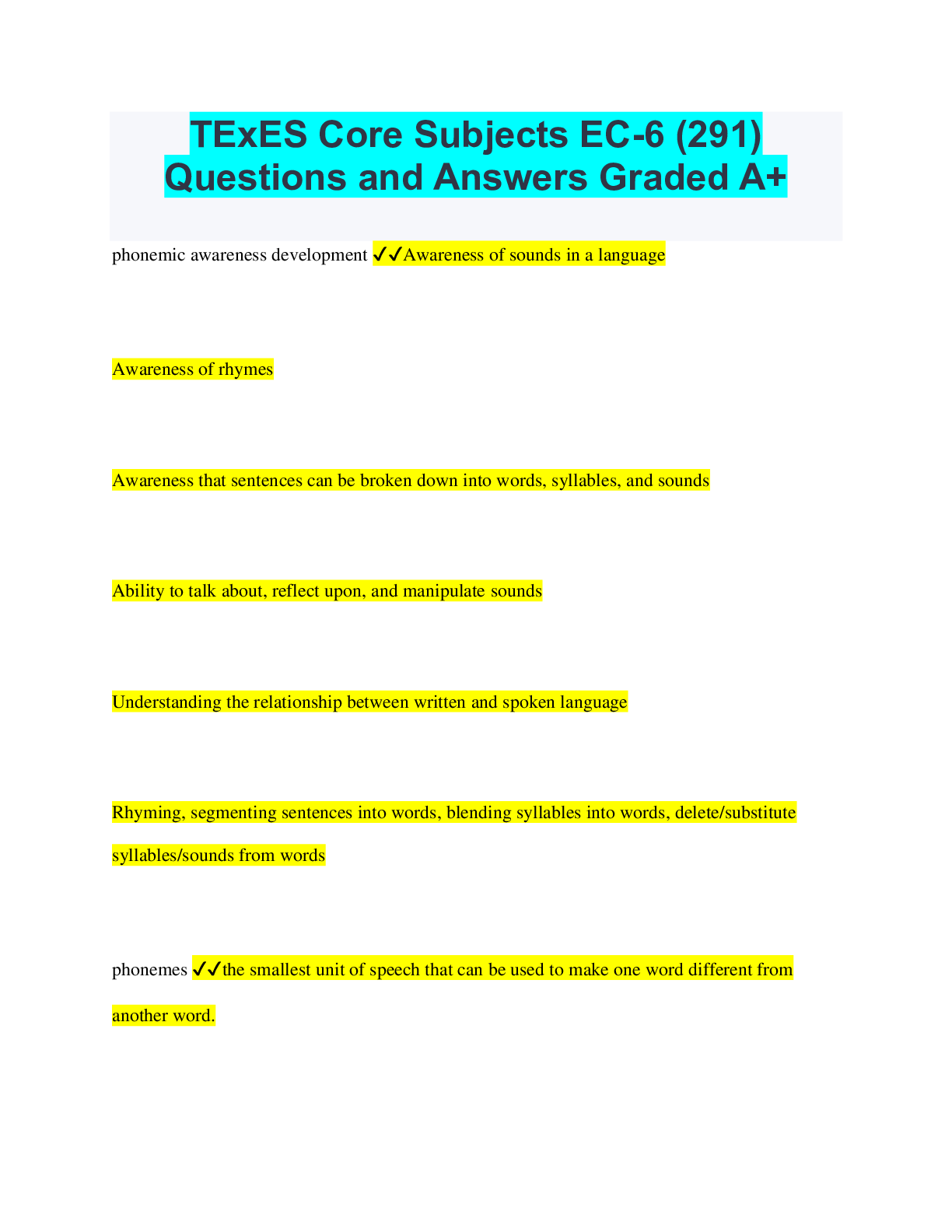
Buy this document to get the full access instantly
Instant Download Access after purchase
Buy NowInstant download
We Accept:

Also available in bundle (1)

TExES BUNDLED EXAMS QUESTIONS AND ANSWERS WITH VERIFIED SOLUTIONS
TExES BUNDLED EXAMS QUESTIONS AND ANSWERS WITH VERIFIED SOLUTIONS
By Nutmegs 2 years ago
$35
27
Reviews( 0 )
$10.00
Can't find what you want? Try our AI powered Search
Document information
Connected school, study & course
About the document
Uploaded On
Apr 14, 2023
Number of pages
31
Written in
Additional information
This document has been written for:
Uploaded
Apr 14, 2023
Downloads
0
Views
126

.png)

